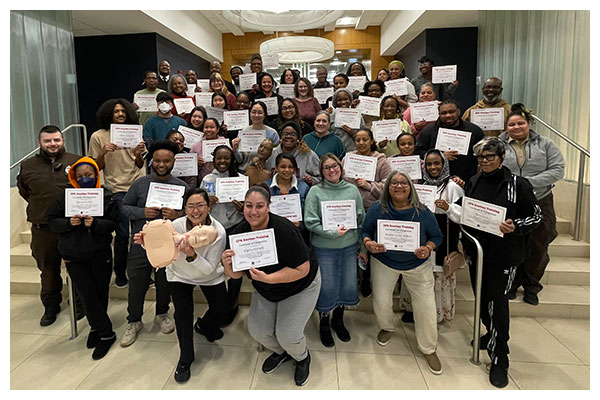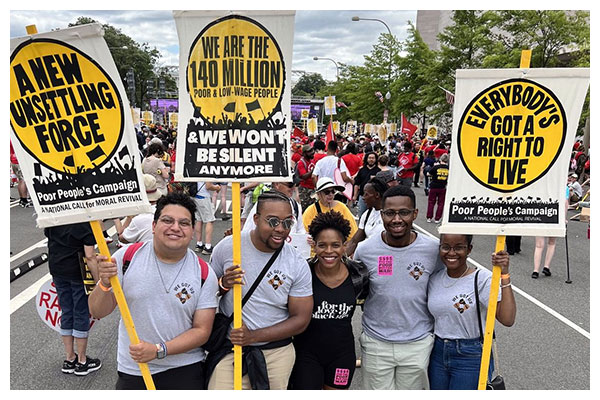
Each year at the annual meeting, CHEST highlights local organizations serving the health care needs of underserved populations in our host city. Representatives from this year’s featured groups have been invited to CHEST 2024 to showcase their work and discuss their successful community intervention strategies.
The Boston Health Care for the Homeless Program (BHCHP), the We Got Us (WGU) grassroots coalition, and a collaboration between the Tufts Community Health Workers Engaging in Integrated Care (COHERE) and Community Action Programs Inter-City (CAPIC) all go above and beyond to make a public health impact within their communities in the Greater Boston area, and CHEST is proud to have them as honored guests. Attendees are encouraged to visit with their representatives at the Experience CHEST booth on Tuesday, October 8, between 11 am and 12 pm ET.
Boston Health Care for the Homeless Program
Founded in 1985, the BHCHP provides dignified, equitable access to high-quality health care to all individuals and families, regardless of their circumstances. At the heart of BHCHP’s mission is a fierce commitment to health equity and social justice, with wide-ranging services and programs that provide all-encompassing support to those in need.
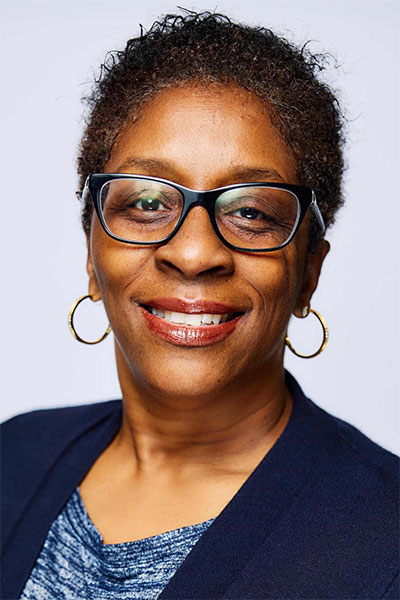
“The stigma of homelessness complicates providing quality health care,” said Patricia Holliday, Chief Equity and Inclusion Officer at BHCHP. “Safe housing is a basic, human need. But the longer time spent without a home can be linked to high levels of mental distress and chronic illnesses. We recognize our patients’ trauma and existing challenges, but we create trusting relationships wherever they are to provide sustained care.”
BHCHP services include everything from a mobile addiction program and full-service dental care to medical respite care and recovery services. The BHCHP Street Team is devoted to finding unhoused individuals and providing access to the care they need.
Other support services that BHCHP offers include gender care and gender identity support, hepatitis C and HIV care, and harm-reduction programming such as Supportive Place for Observation and Treatment (SPOT) to help prevent overdoses. The organization also offers services and programs such as Women’s Wednesday and Her Saturdays, which provide access to women’s health services, and its Oasis Clinic, which offers free support services to immigrants and their families.
“Our approach to community health care allows BHCHP to be recognized as a thought leader in homeless medicine,” Holliday said. “We are so fortunate to provide services to the populations we serve and to be embraced by our partner hospitals, community health groups, and Boston shelters. This is all possible because we build trusting relationships and treat patients with respect.”
About the Mural
Through its Community Connections initiative, CHEST is donating the mural pictured above to the Boston Health Care for the Homeless Program. The mural, which will measure 6 feet wide by 4 feet tall, was designed by artist Jeremy Jarvis and will be installed in the BHCHP facility following CHEST 2024. The design encapsulates the core values of compassion, community, and resilience. The two intertwined hands symbolize the nurturing and supportive relationships fostered by BHCHP. Radiating from the hands are colorful waves that sweep through the vibrant Boston skyline in the background. These waves symbolize the positive impact of BHCHP’s work, illustrating how acts of kindness and support can create ripples of change throughout the city. The mural will serve as a visual representation of BHCHP’s dedication to fostering resilience and offering hope, making Boston a city where everyone, including those experiencing homelessness, is cared for and valued.
Tufts COHERE and CAPIC Collaboration
The Tufts COHERE program and CAPIC teamed up to improve health equity and access in underserved communities by overcoming language barriers in the health care workforce.
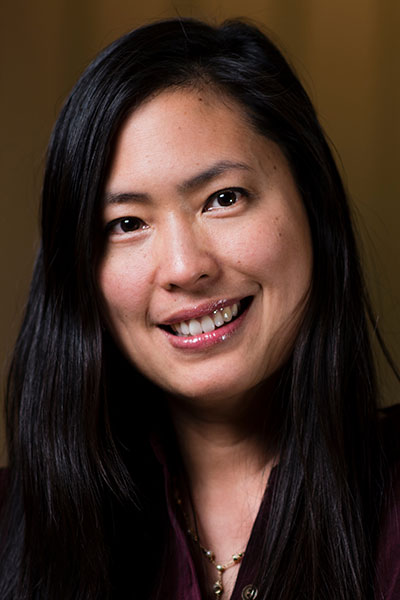
As part of the collaboration, CAPIC staff members are trained through COHERE and use a lung cancer screening tool that’s available in English and Spanish. The screening tool was created by two medical students at Tufts to address disparities related to lung cancer risk and access to services in the Latinx community. The platform provides information about risk factors for lung cancer, how to screen, and where people can find additional resources.
CAPIC serves scores of individuals in the Latinx community who either speak only Spanish or are learning English. Offering a platform to deliver information in a patient’s primary language presents an opportunity to build trust in community health workers and to offer new services that were not accessible previously.
“Our hope is to achieve health equity [and] to provide services in multiple languages, which is helpful given the diversity of Boston,” said Kimberly Dong, DrPH, MS, RD, Director and Co-Founder of COHERE and Associate Professor at Tufts University. “We’re trying to be mindful about ways to engage people into care in a language that they feel comfortable with and can understand—and feel that trust again in engaging in care.”
We Got Us
WGU was launched in 2021 to respond to health inequities that surfaced during the COVID-19 pandemic. The grassroots, student-led organization was initially founded to help fill gaps in access to COVID vaccines, especially in Boston’s historically Black communities.
WGU Founder and Executive Director, LaShyra Nolen, MD, MPP, was a full-time student at Harvard Medical School during clinical rotations when the vaccines began rolling out. She quickly realized she was uniquely positioned to help close information gaps in the community after her family and friends began asking her questions about the vaccines.
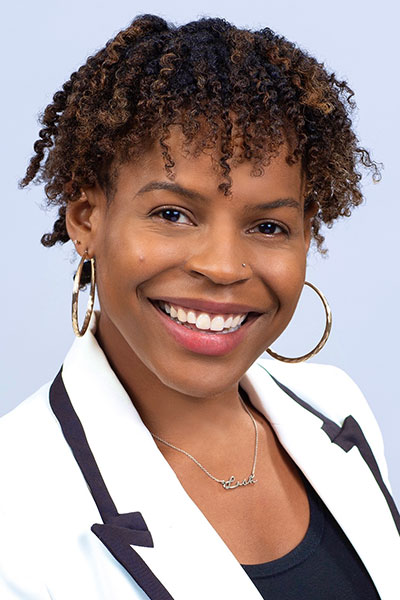
“You realize that there’s this great gap of folks who need information from trusted resources but may not be able to get access to it. I’m able to do this for my family members, but not everybody has access to that,” Dr. Nolen said. “If we can mobilize folks who also might be in a similar position as me with this expertise—but also this lived experience—that might help address some of the challenges that we’re seeing in our community.”
Among these challenges was the lack of access to vaccine sites in historically Black communities. Many of the early sites were located in predominantly white neighborhoods and offered appointments only during daytime work hours. To increase access to vaccines in underserved communities WGU created resources and services to make vaccine cards and appointments more widely available.
“The thing is, sometimes all these incredible resources can exist, but if you’re not in the community and people don’t know that those things are available to them, then they might not even know how to access them,” Dr. Nolen said.
WGU partners with several organizations in the community, such as the Boston Public Health Commission and the New England Medical Association, and continues to engage directly with the Greater Boston community through health fairs and other events such as empowerment sessions on various health topics.
Support CHEST philanthropy: The Community Connections initiative is generously supported by Meet Boston and member-donors. Visit the CHEST philanthropy website and select “Community impact” to help us enhance and expand the Community Connections program at future annual meetings.
Join us at CHEST 2025
Save the date for the next Annual Meeting, October 19 to 22, 2025, in Chicago. CHEST 2025 will explore the latest advancements in pulmonary, critical care, and sleep medicine, with a focus on innovation and the future, just as the city itself embodies progress and reinvention.







